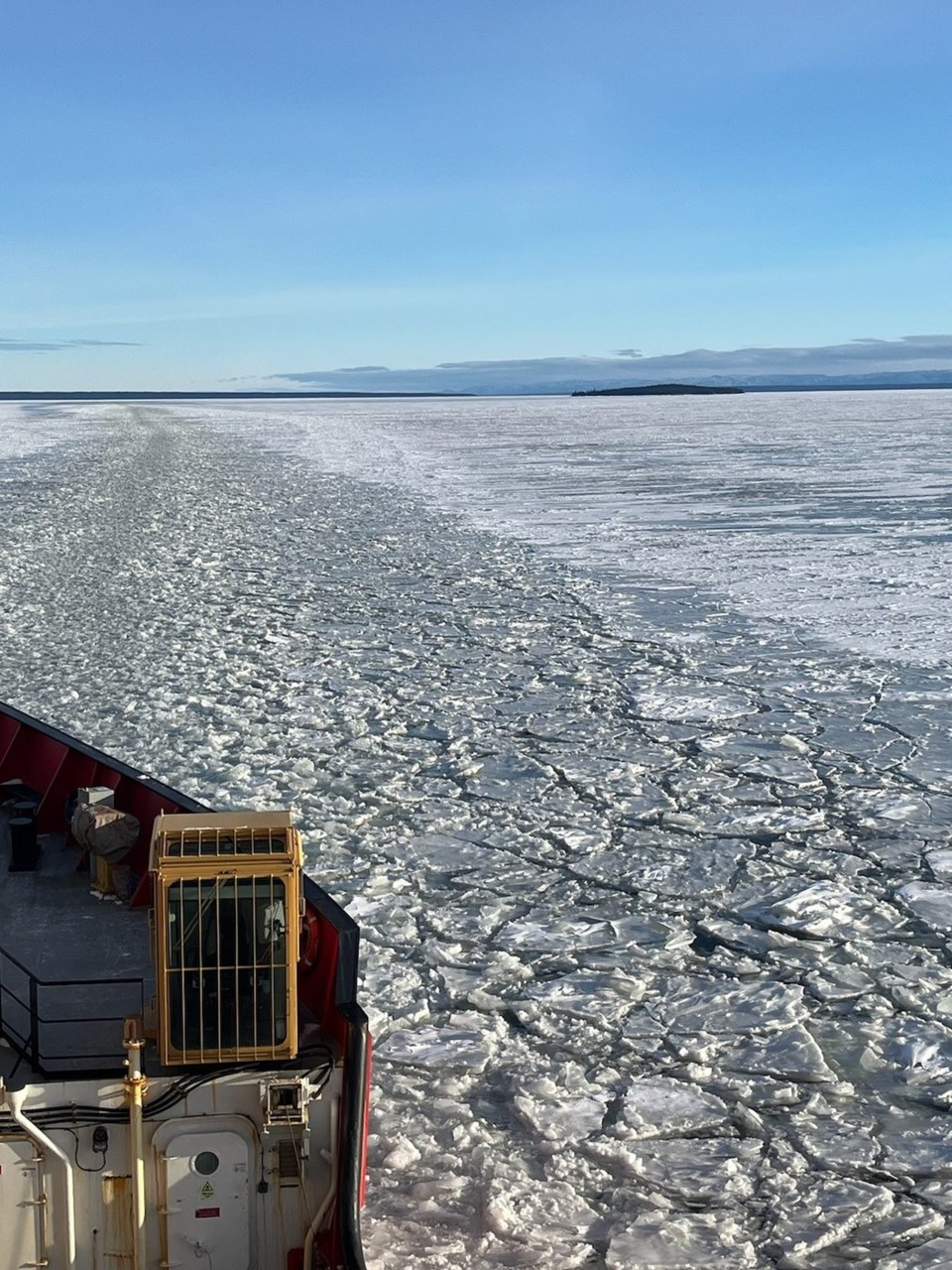ST. JOHN'S, N.L. — A Canadian Coast Guard icebreaker is in central Labrador until Saturday to guide a regional ferry delivering its last shipment of the season.
The Kopit Hopson 1752 icebreaker is helping the Kamutik W ferry navigate ice in Lake Melville, near Happy Valley-Goose Bay, which empties into the Labrador Sea.
Once the ferry passes the frozen buildup in the lake, it should be smooth, clear sailing north up Labrador’s mighty coast, said Dave Leyden, operations manager with Labrador Marine, the company that operates the Kamutik W.
“Conditions have changed along the Labrador coast a lot over the years,” Leyden said in an interview Friday. “It wouldn't even be in the thought to be operating northern Labrador this time of the year, but over the past few years, the ice conditions have not been as bad and it allows us to operate longer.”
The Kamutik W brings freight, including groceries and other supplies, to the remote communities dotting Labrador's northeast coast, as long as ice conditions allow. As there are no roads connecting the towns to the rest of the province, freight must be flown in once the ocean freezes up and the ferry can't get through. Shipping by air is much more expensive than shipping by sea, and grocery prices in these towns tend to climb once the ferry stops running.
The Kamutik's last delivery run of the season is scheduled for Saturday. The 83-metre-long Kopit Hopson 1752 will be waiting in Lake Melville to make sure the ferry gets through, Leyden said.
The most troublesome ice in Lake Melville is between 30 and 60 centimetres thick and found just west of a small landform called Rabbit Island, said George Karaganis, senior meteorologist with the Canadian Ice Service.
The icebreaker escorted the ferry through the lake toward Happy Valley-Goose Bay on Friday, and it will help again on Saturday as the Kamutik sails away from the town and back out toward the coast, he said.
The 83-metre-long Kopit Hopson 1752 is among the smaller icebreakers in the coast guard fleet, but it's just the right size for the job, Leyden said.
Meanwhile, the coast guard is advising people in the Lake Melville region to steer clear of the icebreaking activities.
"Depending on various conditions, the ice can be pushed instead of broken and ice can crack or break far away from the location where the icebreaker is working," said a public safety notice. "This can cause risks for the safety of people and property."
This report by The Canadian Press was first published Dec. 27, 2024.
Sarah Smellie, The Canadian Press


